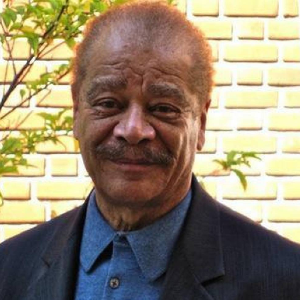Activism
Successful 1-Day Strike Was Only First Step, Activists Say
Hundreds of longshore worker and school activists in a variety of organizations who participated in the one-day strike on Friday, April 29 are developing plans to build their movement by expanding outreach in the community and increasing pressure on the politicians and billionaires who speak with the authority of big money.

By Ken Epstein
Following a historic one-day strike of teachers and Port workers at the end of April, a coalition of labor and community activists continues to gather steam against the billionaire takeover of public Port of Oakland property and the giveaway of public school property to corporate interests.
Hundreds of longshore worker and school activists in a variety of organizations who participated in the one-day strike on Friday, April 29 are developing plans to build their movement by expanding outreach in the community and increasing pressure on the politicians and billionaires who speak with the authority of big money.

Walter Riley. Photo courtesy of Mr. Riley.
Divya Farias, a special education teacher in Oakland and member of the steering committee of the new coalition, Schools and Labor Against Privatization (S.L.A.P.), says she looks forward to building on the results of the strike.
“It was really successful; we shut all the schools and the Port,” she said. “It was historic to have this united action between teachers, the ILWU, and parents,’’ she added, emphasizing the participation of parents and the “solidarity among different unions that came together at the S.L.A.P. rally against privatization (at City Hall).”
Some activists are hopeful that the Oakland City Council will listen to the outcry from constituents who are demanding that the Council place a measure on the ballot that allows voters to decide whether they want to spend over $1 billion in public money for John Fisher’s new A’s stadium and massive real estate development.
Parents, teachers and school advocates are working with schools that are facing school closures this year and next year to enhance community wide understanding that neighborhood schools, even ones that are not large, are necessary to the survival of working-class Black and Latinx neighborhoods.
Others are focusing on a statewide campaign to pressure political leaders who talk liberal but whose actions instead create a commitment to austerity, the sell-off of public assets and backing the Fiscal Crisis Management and Assistance Team (FCMAT), which is a state-funded unaccountable agency that is going around California closing schools and cutting public school funding.
Farias said she saw amazing examples of solidarity in the strike: school workers in AFSCME and SEIU 1021 joined teachers to picket at schools. “Some principals joined teachers on the picket lines, including the president of the administrators’ union.”
“Longshore workers heading to work respected the (community) picket lines (on Friday evening), and for hours we were able to shut down the Port, the economic engine of the Bay Area,” she said.
“It was (also) exciting that parents supported the strike. We really need to grow that solidarity,” Farias said, adding that more and more students are getting involved.
The strength of the movement is the “public alliance between teachers and longshore workers,” she said.
Next steps are to broaden and deepen the movement: “There has to be a greater understanding that the agenda of privatization is the driving force behind the school closures,” she continued.
Farias also emphasized that the fight ahead will not be easy. Though the movement is stronger and has had some victories, she said, “I don’t think school closures are going to go away anytime soon. We’re trying to slow or stop a train that has been on the tracks for a long time now.”
Timothy “Akaamka” Killings, a school employee and S.L.A.P. steering committee member, also viewed the strike as a major step forward for the anti-privatization movement.
“We’ve connected the two struggles: the longshore workers against privatization of the Port of Oakland and the teachers and community against school closures and consolidations,” he said. “In terms of teachers pushing back against the district, and the community being involved in the struggle and being able to get the word out about what’s going on, it’s been a success.”
Killings said there is still much to be done to educate people to understand pro-corporate talking points that are spread by corporate media, that there are too many schools, that the district is broke, that school closures are the way to support higher quality education for Oakland’s under-served students.
Next steps include more outreach and education, actions to get more people involved and finding school board candidates who will fight against school closures to run in the November election, he said.
“The billionaires and the politicians are learning that this is not going to be as easy as they thought it would be. There is going to be a fight,” Killings said.
Civil rights attorney Walter Riley, a community activist and longtime political leader in Oakland, chaired a S.L.A.P. forum on April 30 where local candidates were interviewed about where they stood on school closings and the stadium/real estate project at the Port of Oakland.
“Our job is outreach. I see it as my job to do more outreach, to get greater community participation, to work with people to mobilize to fight these powerful interests that are operating in Oakland,” said Riley.
He said the focus of the candidate forum was to inform the candidates about the positions of the movement and learn from the candidates what they think. “We put them on notice that there is a movement and that we’re organizing.”
Activism
OP-ED: AB 1349 Puts Corporate Power Over Community
Since Ticketmaster and Live Nation merged in 2010, ticket prices have jumped more than 150 percent. Activities that once fit a family’s budget now take significant disposable income that most working families simply don’t have. The problem is compounded by a system that has tilted access toward the wealthy and white-collar workers. If you have a fancy credit card, you get “presale access,” and if you work in an office instead of a warehouse, you might be able to wait in an online queue to buy a ticket. Access now means privilege.

By Bishop Joseph Simmons, Senior Pastor, Greater St. Paul Baptist Church, Oakland
As a pastor, I believe in the power that a sense of community can have on improving people’s lives. Live events are one of the few places where people from different backgrounds and ages can share the same space and experience – where construction workers sit next to lawyers at a concert, and teenagers enjoy a basketball game with their grandparents. Yet, over the past decade, I’ve witnessed these experiences – the concerts, games, and cultural events where we gather – become increasingly unaffordable, and it is a shame.
These moments of connection matter as they form part of the fabric that holds communities together. But that fabric is fraying because of Ticketmaster/Live Nation’s unchecked control over access to live events. Unfortunately, AB 1349 would only further entrench their corporate power over our spaces.
Since Ticketmaster and Live Nation merged in 2010, ticket prices have jumped more than 150 percent. Activities that once fit a family’s budget now take significant disposable income that most working families simply don’t have. The problem is compounded by a system that has tilted access toward the wealthy and white-collar workers. If you have a fancy credit card, you get “presale access,” and if you work in an office instead of a warehouse, you might be able to wait in an online queue to buy a ticket. Access now means privilege.
Power over live events is concentrated in a single corporate entity, and this regime operates without transparency or accountability – much like a dictator. Ticketmaster controls 80 percent of first-sale tickets and nearly a third of resale tickets, but they still want more. More power, more control for Ticketmaster means higher prices and less access for consumers. It’s the agenda they are pushing nationally, with the help of former Trump political operatives, who are quietly trying to undo the antitrust lawsuit launched against Ticketmaster/Live Nation under President Biden’s DOJ.
That’s why I’m deeply concerned about AB 1349 in its current form. Rather than reining in Ticketmaster’s power, the bill risks strengthening it, aligning with Trump. AB 1349 gives Ticketmaster the ability to control a consumer’s ticket forever by granting Ticketmaster’s regime new powers in state law to prevent consumers from reselling or giving away their tickets. It also creates new pathways for Ticketmaster to discriminate and retaliate against consumers who choose to shop around for the best service and fees on resale platforms that aren’t yet controlled by Ticketmaster. These provisions are anti-consumer and anti-democratic.
California has an opportunity to stand with consumers, to demand transparency, and to restore genuine competition in this industry. But that requires legislation developed with input from the community and faith leaders, not proposals backed by the very company causing the harm.
Will our laws reflect fairness, inclusion, and accountability? Or will we let corporate interests tighten their grip on spaces that should belong to everyone? I, for one, support the former and encourage the California Legislature to reject AB 1349 outright or amend it to remove any provisions that expand Ticketmaster’s control. I also urge community members to contact their representatives and advocate for accessible, inclusive live events for all Californians. Let’s work together to ensure these gathering spaces remain open and welcoming to everyone, regardless of income or background.
Activism
Oakland Post: Week of December 31, 2025 – January 6, 2026
The printed Weekly Edition of the Oakland Post: Week of – December 31, 2025 – January 6, 2026

To enlarge your view of this issue, use the slider, magnifying glass icon or full page icon in the lower right corner of the browser window.
Activism
Big God Ministry Gives Away Toys in Marin City
Pastor Hall also gave a message of encouragement to the crowd, thanking Jesus for the “best year of their lives.” He asked each of the children what they wanted to be when they grow up.

By Godfrey Lee
Big God Ministries, pastored by David Hall, gave toys to the children in Marin City on Monday, Dec. 15, on the lawn near the corner of Drake Avenue and Donahue Street.
Pastor Hall also gave a message of encouragement to the crowd, thanking Jesus for the “best year of their lives.” He asked each of the children what they wanted to be when they grew up.
Around 75 parents and children were there to receive the presents, which consisted mainly of Gideon Bibles, Cat in the Hat pillows, Barbie dolls, Tonka trucks, and Lego building sets.
A half dozen volunteers from the Big God Ministry, including Donnie Roary, helped to set up the tables for the toy giveaway. The worship music was sung by Ruby Friedman, Keri Carpenter, and Jake Monaghan, who also played the accordion.
Big God Ministries meets on Sundays at 10 a.m. at the Mill Valley Community Center, 180 Camino Alto, Mill Valley, CA Their phone number is (415) 797-2567.
-

 Activism4 weeks ago
Activism4 weeks agoDesmond Gumbs — Visionary Founder, Mentor, and Builder of Opportunity
-

 Activism4 weeks ago
Activism4 weeks agoFamilies Across the U.S. Are Facing an ‘Affordability Crisis,’ Says United Way Bay Area
-

 Alameda County4 weeks ago
Alameda County4 weeks agoOakland Council Expands Citywide Security Cameras Despite Major Opposition
-

 Alameda County4 weeks ago
Alameda County4 weeks agoBling It On: Holiday Lights Brighten Dark Nights All Around the Bay
-

 Activism4 weeks ago
Activism4 weeks agoOakland Post: Week of December 17 – 23, 2025
-

 Activism4 weeks ago
Activism4 weeks agoBlack Arts Movement Business District Named New Cultural District in California
-

 Activism4 weeks ago
Activism4 weeks agoLu Lu’s House is Not Just Toying Around with the Community
-

 Activism1 week ago
Activism1 week agoOP-ED: AB 1349 Puts Corporate Power Over Community

















































